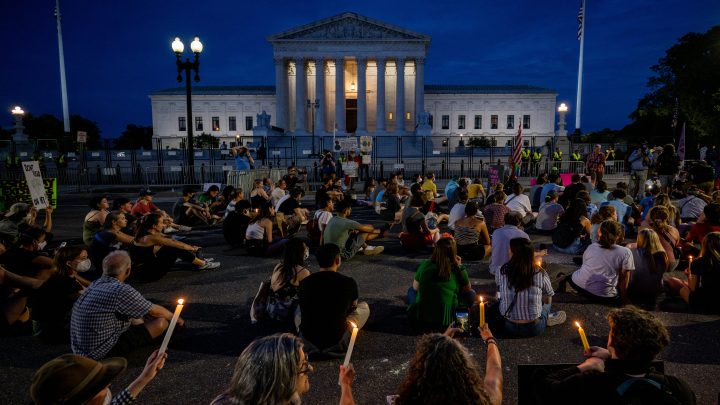
Abortion travel benefit unlikely to reach many low-wage workers
Abortion travel benefit unlikely to reach many low-wage workers

Disney, Dick’s Sporting Goods, Meta, American Express and Goldman Sachs are among the latest in a growing list of companies that say they will cover expenses for employees who travel out of state to access abortion care after the Supreme Court overturned Roe v. Wade Friday.
In many ways, this is a strange role for employers. This benefit, new for some, raises many questions about privacy, social or professional stigma and legal liability. On the other hand, employers have long been the primary source of many social supports in this country — from health care to retirement plans.
There may be no real precedent for an employer benefit that cuts this deep into bitter social divides, but the rationale for employers providing it isn’t unique, said Hubert Joly, a professor at Harvard Business School and former CEO of Best Buy.
“In the case of Roe v. Wade, this is not about getting on a crusade of which side is right or wrong,” he said. “This is about the company is saying, ‘I have people in my care, these are our employees, and it’s vital for us that we have a diverse workforce, where women, in particular, are well represented and feel that they can be the best version of themselves.'”
Joly said it’s fundamentally about the relationship with employees — current and future — the same reason an employer might provide any benefit, from weekly massages to paid time off.
But providing benefits on a company-by-company basis means they’re often distributed unequally, said Eileen Appelbaum, the co-director of the Center for Economic and Policy Research.
“We always welcome whatever deep-pocketed employers can do for their employees,” Appelbaum said. “But we also know that the main beneficiaries are white-collar, higher-paid employees at these particular companies.”
One example is paid family and sick leave, which could be considered precursors for this abortion aid benefit, as workers will need to take time off to travel out of state. Federal data show nearly all top-paid private-sector workers get paid sick time, while only one-third of the lowest-paid workers do.
Almost 40% of those top-paid workers have access to paid family leave, but for the lowest-income workers, that figure’s closer to 10%. Plus, Black and Hispanic or Latino workers are less likely than white workers to have access to these benefits.
“The private market hasn’t solved these economic inequity issues in decades,” said Josephine Kalipeni, executive director of the nonprofit Family Values @ Work. “They just continue to create a middle-class divide and continue to create a gender and racial wealth divide.”
While large, profitable companies can often afford to be generous, Kalipeni points out that about half of private-sector workers are employed by small businesses — not to mention the scores of part-time, seasonal and contract or gig workers who don’t qualify for benefits even from giant employers like Amazon.
“When I think about the workers we have to solve for, I think about myself and my family members who are Black, disabled, working caregivers,” said Kalipeni, “and if we don’t solve this for that profile of people, we’re going to get it wrong.”
Employer benefits like paid family leave or the new travel reimbursements are unlikely to reach most of the people who seek abortion care, said Rachel Jones, principal research scientist at the Guttmacher Institute, a reproductive rights organization.
“We know from the research that we’ve done that the majority of people getting abortions are poor or low-income,” said Jones.
She said three-quarters of them are near or below the federal poverty level.
Stephanie Loraine Piñeiro, co-executive director of the Florida Access Network, which funds abortion care, said the average income of the patients the organization supported the previous year was $11,000 a year.
“They work in an industry that doesn’t typically provide benefits to them,” said Piñeiro.
At least one business — the women-led dating app Bumble, based in Texas — has pledged to fund aid organizations similar to Piñeiro’s, which reach beyond the company’s employee base.
There’s a lot happening in the world. Through it all, Marketplace is here for you.
You rely on Marketplace to break down the world’s events and tell you how it affects you in a fact-based, approachable way. We rely on your financial support to keep making that possible.
Your donation today powers the independent journalism that you rely on. For just $5/month, you can help sustain Marketplace so we can keep reporting on the things that matter to you.











